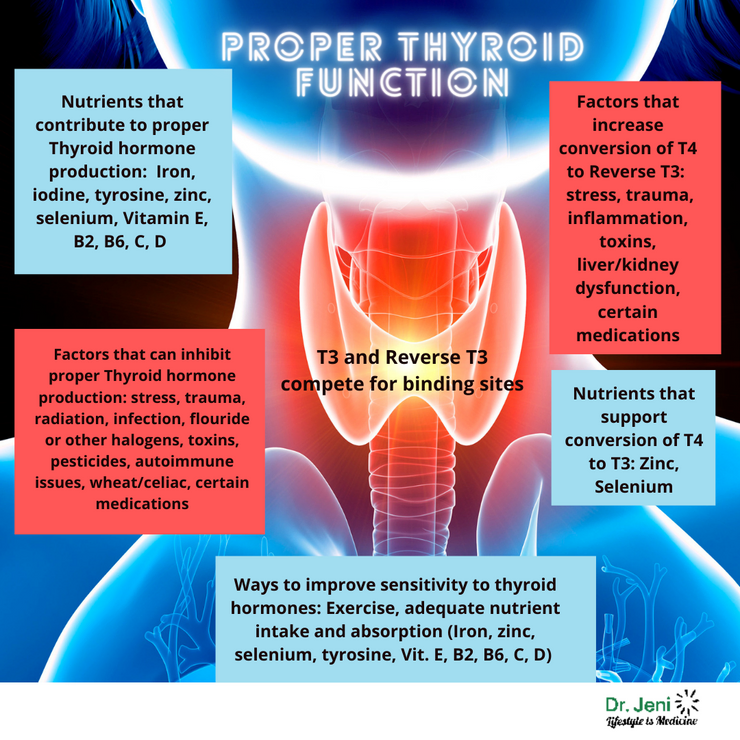Chances are if you are reading this, you are familiar with thyroid dysfunction. It’s unfortunately, all too common. I have many people see me for a known or suspected thyroid issue. It can make you feel tired, cold, sluggish and make weight loss super tough.
So often, the “fix” is to give thyroid hormones, but what if a slow thyroid is actually not the real problem. What if there is a different root cause? I actually see this quite frequently. There are a few things that can cause a thyroid to show up as an issue when it’s actually not the primary problem.
Stress. Your adrenal, or stress handling system can cause your thyroid to compensate. Your adrenal system deals with SHORT TERM stress beautifully. But, over the long haul, if you stress hormones are chronically elevated, your thyroid actually slows down to “help” out.
By treating the thyroid problem, you can actually feel worse.
Then there is the digestive side of this issue. The creation of Thyroid hormones depends on the building blocks to create these hormones. Those include things like selenium, iodine, iron, tyrosine, B vitamins, vitamin E, and vitamin D just to list a few. If you lack these nutrients, it can be hard to make the proper hormones needed for healthy thyroid function. You must only consume these critical nutrients, but also be able to absorb them properly. I do a significant amount of nutrient testing and frequently find indicators that people are not absorbing their nutrients properly. This can cause a number of issues.
That is just one piece of the thyroid puzzle. If you are experiencing a slow thyroid because your body is starting to break down it’s own tissues (Hashimoto’s), there is most likely a trigger in one or several of the foods you are eating. If you do not find this trigger, not only will you not resolve the thyroid issue, the auto immune issue will continue to get worse and many people who develop one auto immune condition will eventually go on to develop another auto immune condition (1). That makes it super important to determine the cause of a thyroid issue.
Then we have issues with conversion of thyroid hormones. We have two forms of thyroid hormones, T3 and T4. T3 is the active form, but it has a very short life. T4 must be converted into T3 in order to be used. Most medications prescribed for hypothyroid are synthetic forms of T4. If conversion isn’t happening properly, this won’t actually help the problem. Zinc and selenium are critical for this conversion to happen properly.
Thyroid hormones can also be blocked for absorption at the receptor sites. This means that instead of taking in thyroid hormone (which is what we want), something else binds at that site and steals the spot. There are a few foods and other substances that do this. Looking at reverse T3 levels will help us determine whether or not this is an issue in a particular case so we can address that.
Things that you can do to increase the overall sensitivity of thyroid hormones is to exercise and consume a healthy, nutrient-dense diet.
As you can see, the thyroid is much more than a quick look at a TSH or even a T4 only marker. There are many factors that go into correctly determining the root cause of a thyroid issue so that it can be addressed properly.
If you have any questions about the thyroid and want to investigate them, please reach out to me so we can chat. I’m here to help!
(1) Boelaert K, Newby PR, Simmonds MJ, Holder RL, Carr-Smith JD, Heward JM, Manji N, Allahabadia A, Armitage M, Chatterjee KV, Lazarus JH, Pearce SH, Vaidya B, Gough SC, Franklyn JA. Prevalence and relative risk of other autoimmune diseases in subjects with autoimmune thyroid disease. Am J Med. 2010 Feb;123(2):183.e1-9. doi: 10.1016/j.amjmed.2009.06.030. PMID: 20103030.



